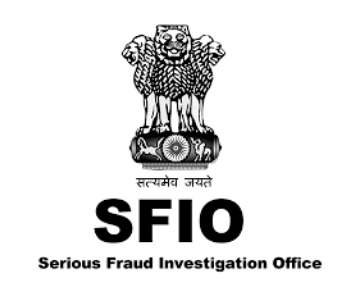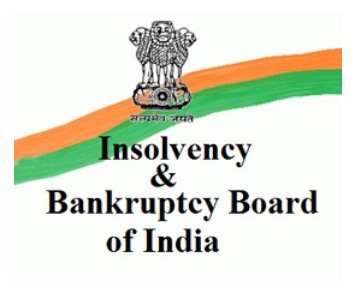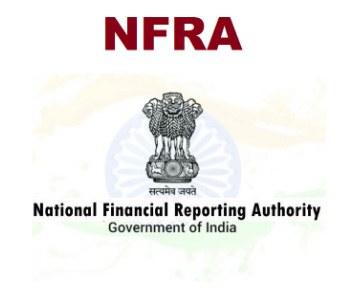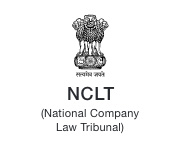
Minority Interest
Balance to be struck between the rule of the majority and the rights of the minority
1. The fundamental principle defining operation of shareholders democracy is that the rule of majority shall prevail. However, it is also necessary to ensure that this power of the majority is placed within reasonable bounds and does not result in oppression of the minority and mis-management of the company. The minority interests, therefore, have to be given a voice to make their opinions known at the decision making levels. The law should provide for such a mechanism. If necessary, in cases where minority has been unfairly treated in violation of the law, the avenue to approach an appropriate body for protecting their interests and those of the company should be provided for. The law must balance the need for effective decision making on corporate matters on the basis of consensus without permitting persons in control of the company, i.e., the majority, to stifle action for redressal arising out of their own wrong doing.
Minority and ‘Minority Interest’ should be specified in the substantive Law
2.1 At present, in case of a company having share capital, not less than 100 members or not less than 1/10th of total number of members, whichever is less or any member or members holding not less than 1/10th of issued share capital have the right to apply to CLB/NCLT in case of oppression and mismanagement. In case of companies not having share capital, not less than 1/5th of total number of members have the right to apply.
2.2 To reflect the interest of the “Minority”, a 10% criteria in case of companies having share capital and a 20% criteria in the case of other companies is provided for in the existing Act. In Section 395 of the Act, the dissenting shareholders have been put at the limit of 10% of shares. Thus Minority could be defined as holding not more than 10% shares for the limited purpose of agitating their rights before the appropriate forum.
2.3 Oppression is defined in section 397(2). It is defined as conducting the company’s affairs in a manner prejudicial to public interest or in a manner oppressive to any member or members. Mis-management has been defined in section 398(1) of the Act, as conducting the affairs of the company in a manner prejudicial to public interest or in a manner prejudicial to the interests of the company.
2.4 The Committee on examination of the existing provisions felt that a reasonable framework could be enabled through specific provisions to be brought in the new Act to define “Minority” (on the lines of clause (2.2) above) and the “Minority Interest “ (on the lines of clause (2.3) above).
Representation of minority interests
3. While the Committee feels that the concept of independent directors would provide an objective scrutiny of management, operations and decision making, the Boards of the companies could also incorporate the concept of representation of specific minority shareholders group. It was observed that the existing Act provided an option to company to adopt proportionate representation for the appointment of directors but this option was rarely used. A view was expressed that the applicability of the provisions of Section 265 (existing Act) could be made mandatory. The specific minority appointed director/independent director could also play an important role in investor protection. The Committee view was that the existing option may be retained.
Right of share holders to be informed through correct disclosures
4. The risks of investors can be reduced / minimized through adequate transparency and disclosures. The law should indicate in clear terms the rights of members of the company to get all information to which they are entitled in a timely manner. The financial information and disclosures to be provided to shareholders should not be in excessively technical format but should be simple to understand. This will enhance the credibility of the company and will help the shareholders to take an informed and conscious decision in respect of their investments. Besides, statutory information, which would be regulated through law, the information could also be made available through other means like print, electronic media, company website etc. A regime of stringent disclosure norms should be provided for in case of companies accessing funds through public offers. There should be adequate and deterrent penalties in law against wrong disclosures.
Right of minority to be heard
5. Once the principle of protection of “Minority Interest” is recognized in the Act, there would also be a need to put in place an appropriate mechanism for ensuring that such provisions relating to “Minority Interest” do not obstruct the Board or the management from performing their functions genuinely in interests of the company. The Board and the management should, therefore, be protected from undue and unjustified interference from unscrupulous shareholders acting in the guise of investors’ rights.
Rights of minority shareholders during meetings of the company
6. Sometimes, the meetings of the company are so organized so as to deprive the minority of an effective hearing. The procedures to be prescribed under the Act should safeguard against such behaviour by the company. There should be extensive use of postal ballot including electronic media to enable shareholders to participate in meetings.
Rights in case of Oppression and Mismanagement
7. There are adequate provisions in the existing Act to prevent Oppression and Mismanagement. Minority, represented by specified number of members or members holding requisite percentage of equity capital are entitled to approach Courts/Tribunals for protection of their interests. The quasi-judicial body is empowered to order a number of remedial measures for regulation of the conduct of company’s affairs. These measures, inter-alia, include purchase of shares or interests of any members of company by other members; termination, setting aside or modification of agreements relating to managerial personnel; setting aside of transactions relating to transfer, delivery of goods etc, or any other matter for which Court/Tribunal feels that provisions should be made. The Court/Tribunal is also empowered to appoint such number of persons as necessary to effectively safeguard interest of the company.
Rights of minority shareholders during mergers/ amalgamations/ takeovers
8.1 As per existing provisions of the Act, approval of High Court / Tribunal is required in case of corporate restructuring (which, inter-alia, includes, mergers/amalgamations etc.) by a company. The Scheme is also required to be approved by shareholders, before it is filed with the High Court. The scheme is circulated to all shareholders along with statutory notice of the court convened meeting and the explanatory statement u/s 393 of the Act for approving the scheme by shareholders.
8.2 Though there may not be any protection to any dissenting minority shareholders on this issue, the Courts, while approving the scheme, follow judicious approach by mandating publicity about the proposed scheme in newspaper to seek objections, if any, against the scheme from the shareholders. Any interested person (including a minority shareholder) may appear before the Court. There have been, however, occasions when shareholders holding miniscule shareholdings, have made frivolous objections against the scheme, just with the objective of stalling or deferring the implementation of the scheme. The courts have, on a number of occasions, overruled their objections.
8.3 It is, therefore, felt that there should be specific provision in the Act to put a limit (either according to a minimum number of persons or according to a minimum percentage of shareholding) for entitling any body to object such a scheme. It would also be appropriate to provide for acquisition of remaining 10% shares in a company, of which 90% has been acquired by an acquirer. Such acquisition of 10% shares should be as per Rules to be framed by Central Government. The Committee has also made recommendations separately in para 19 of Chapter X, concerning a threshold limit for maintainability of objections by barring minority shareholders with insignificant stake from obstructing schemes of arrangement.
8.4 In case of Takeovers, as per SEBI (Substantial Acquisition of Shares and Takeover) Regulations, 1997, SEBI has powers to appoint investigating officer to undertake investigation, in case complaints are received from the investors, intermediaries or any other person on any matter having a bearing on the allegations of substantial acquisition of shares and takeovers. SEBI may also carry out such investigation suo moto upon its own knowledge or information about any breach of these regulations. Under section 395 of the Act, a transferee company, which has acquired 90% shares of a transferor company through a scheme or contract, is entitled to acquire shares of remaining 10% shareholders. Dissenting shareholders have been provided with an opportunity to approach Court/Tribunal. This scheme of things appears to be fair and should be continued. In sum :- a) In order to object a scheme of amalgamation by investors, a limit shall be determined either according to the minimum number of members or according to the minimum percentage of shareholding; b) The provision of section 395A which were incorporated in the Companies (Amendment) Bill, 2003 for acquisition of remaining shares may be considered as a basis for developing an appropriate framework in this regard.
Fair valuation as a means of safeguarding minority interests
9.1 There should be recognition of principle of valuation of shares of a company through an independent valuation mechanism as means of safeguarding minority interests. The independent valuer should be appointed by Audit Committee where such a Committee is mandated or by the Board in other cases. The shareholders should have the right to approach the Court / Tribunal if they perceive the process to be unfair. In such cases, the Tribunal should be empowered to appoint an independent valuer. These principles for valuation of shares could also applied in case of companies that have delisted and have a shareholder base of 1000 or more.
9.2 Further, this Committee has recommended that a company that has delisted from all the Stock Exchanges in India and has a shareholder / depositor base of 1000 or more should be mandated to give one buy-back offer within a period of three years of delisting. The Committee feels that such an offer, taken in the background of the recommendations of ensuring fair valuations of shares, would also serve to protect minority interests.
Class Action/Derivative suits
10.1 In case of fraud on the minority by wrongdoers, who are in control and prevent the company itself bringing an action in its own name, derivative actions in respect of such wrong non-ratifiable decisions, have been allowed by courts. Such derivative actions are brought out by shareholder(s) on behalf of the company, and not in their personal capacity (ies), in respect of wrong done to the company. Similarly the principle of “Class/Representative Action” by one shareholder on behalf of one or more of the shareholders of the same kind have been allowed by courts on the grounds of persons having same locus standi.
10.2 Though these principles have been upheld by courts on many occasions, these are yet to be reflected in Law. The Committee expresses the need for recognition of these principles.











